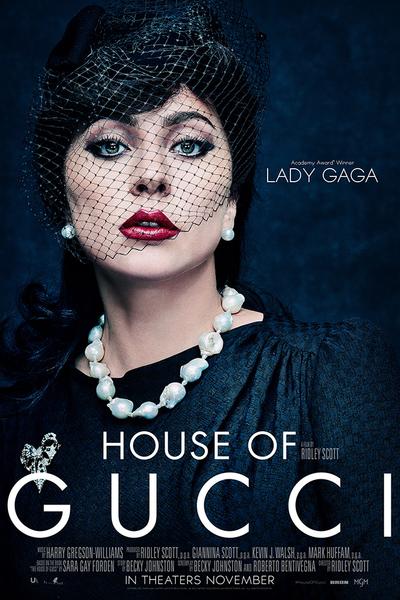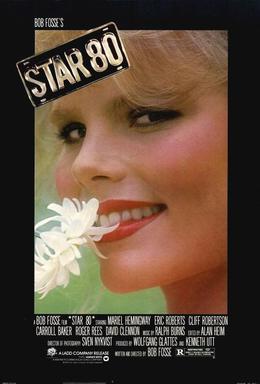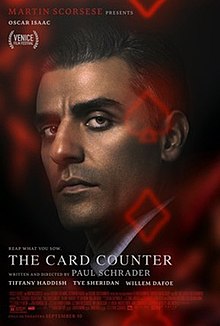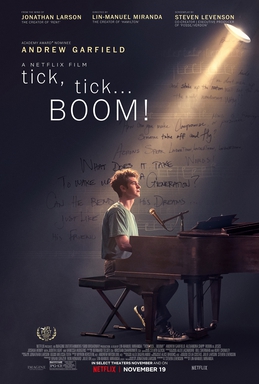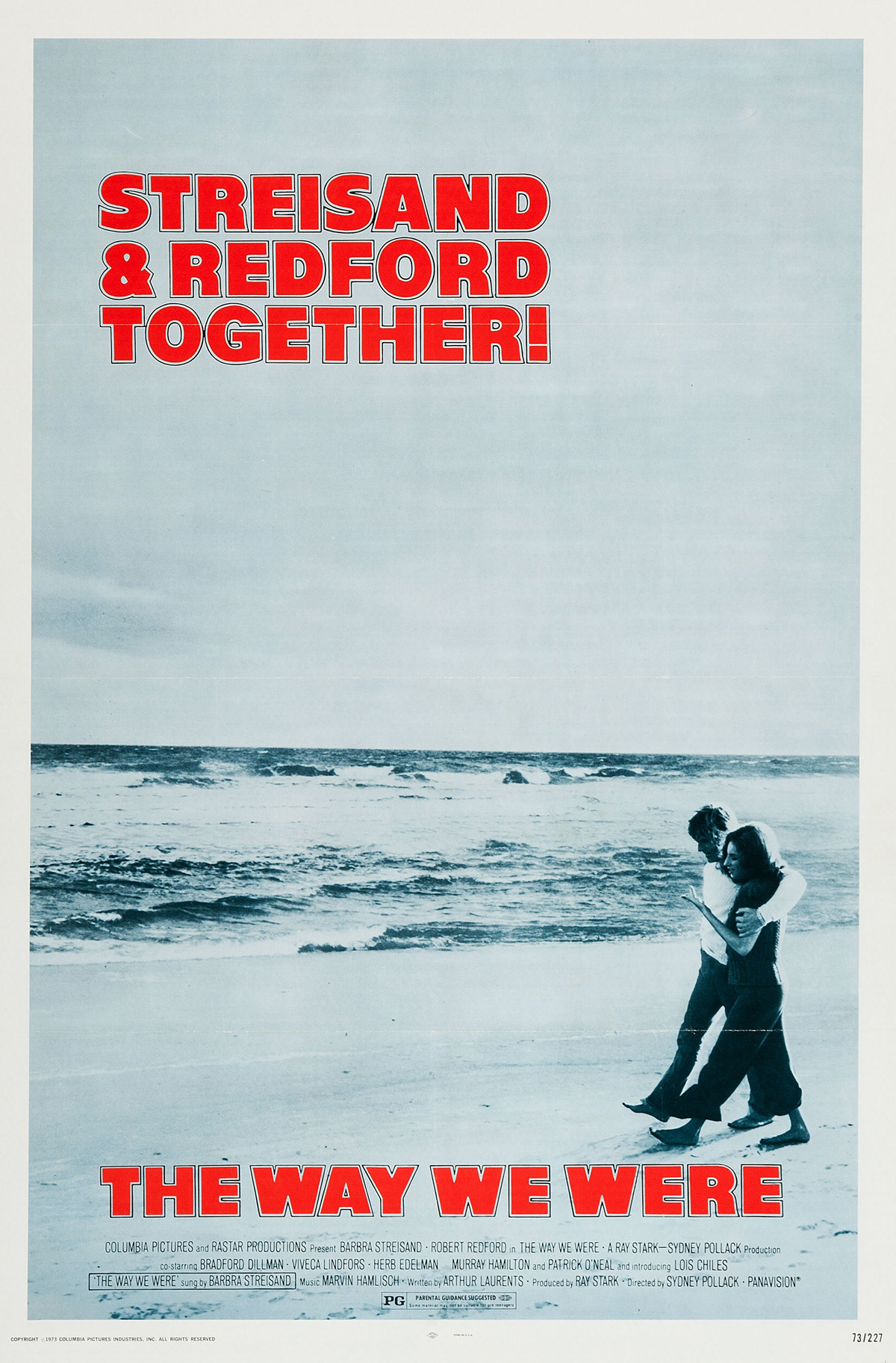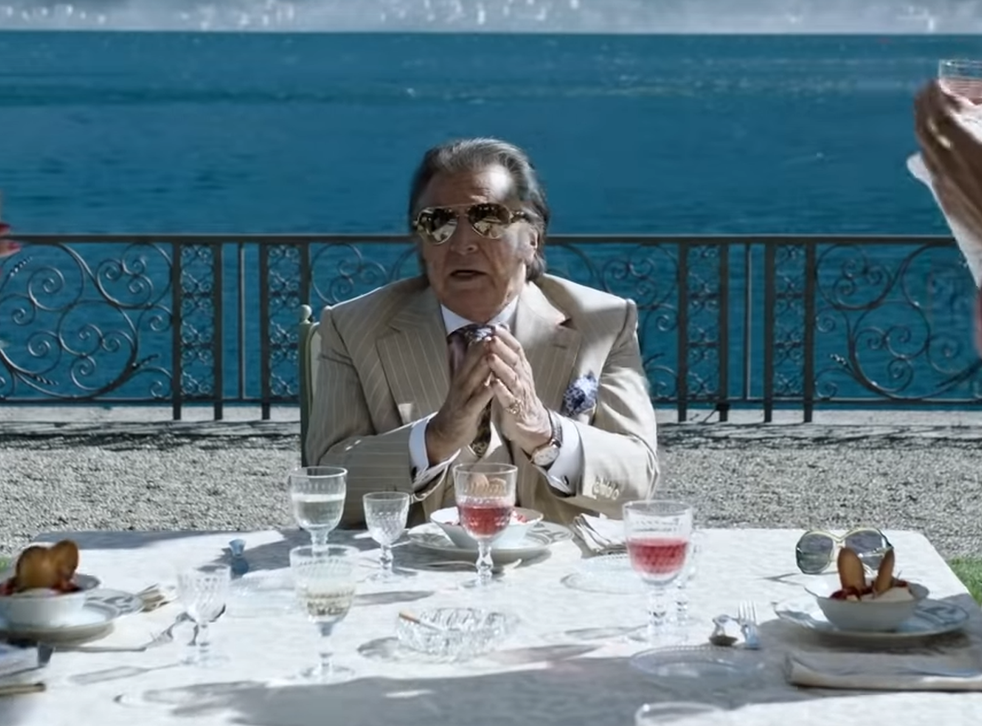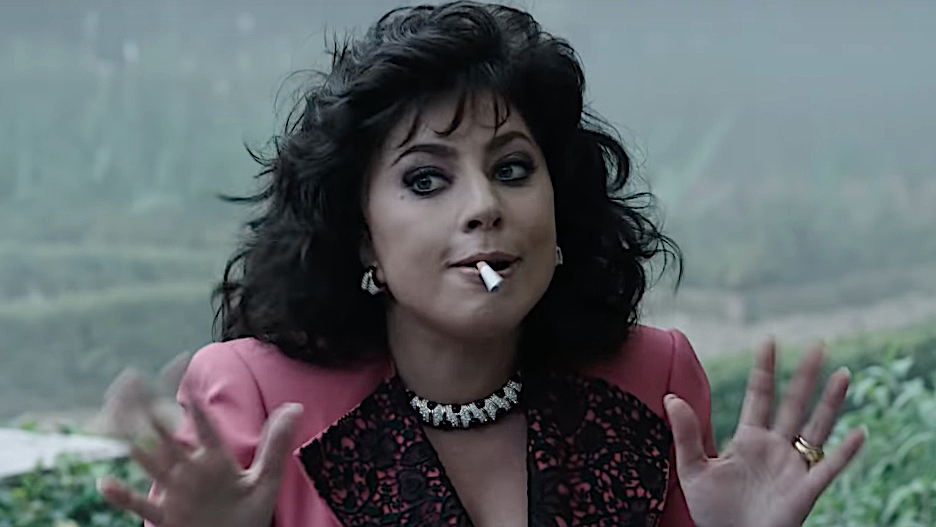
‘House of Gucci’: Gaga kills it, in more ways than one
Like Bob Fosse’s “Star 80,” Ridley Scott’s “House of Gucci” is one of those films where the ends don’t justify the means. Yes, something tragic under the category of “spousal violence” occurred. Without it, there’s no movie. But in the strictest dramatic interpretation, there’s no movie here anyway. So why can people watch “House of Gucci” for two and a half hours and feel satisfied?
Well, sometimes actors earn their paychecks. It’s hard to top Al Pacino, Jeremy Irons and Jared Leto, but Lady Gaga, as Patrizia Reggiani, does it. She really is Italian, and her makeup and hair people (Sarah Tanno and Frederic Aspiras) brilliantly convert her from an ethnic persona of early scenes into one of the nouveau riche. This is a Merlot Movie, and Gaga’s chemistry with the brilliantly understated Adam Driver keeps the wine flowing, until they part under flat and uninteresting circumstances, and, kind of like Katie and the baby in “The Way We Were,” the movie sort of forgets that Patrizia and her daughter are out there somewhere, and Scott closes with boardroom backstabbing (of course, every revelation occurs in a tense face-to-face restaurant meeting, not over a phone call) in which the script seriously struggles to explain what any of this accomplishes and why anyone really has to sell their stakes. (It’s notable that Gaga doesn’t even sing in this movie. And it’s also notable, though common, that the movie is in English, with actors speaking in thick accents.)
Lots of directors want and try to do the Lady MacBeth story. The facts, which Scott impressively adheres to, don’t justify it. But there actually is a movie here. It could be called What Happens When Children of Elite Businesspeople Are Unable to Run the Business. Results include betrayal, feuds, embarrassments, potential bankruptcies, maybe murder. You’ve seen it several times, including in “The Godfather,” which deftly spills into tragedy when the one capable son is compelled to pursue this rotten lifestyle. The problem in “House of Gucci” is that this corporate dysfunction really doesn’t have anything to do with the meltdown of Patrizia, who stopped caring a couple decades earlier about whether knockoff Gucci bags were being sold on the streets.
Gucci (the company) was founded by Guccio Gucci in the 1920s as a leather-goods producer. His sons brought global fame to the fashion house, accelerated by the bamboo bag carried by Ingrid Bergman in the 1954 Rossellini film “Viaggio in Italia.” Guccio’s children who are portrayed in the film, Aldo and Rodolfo, are linchpins of the brand — Rodolfo the artistic elite, Aldo the warm salesman. They took Gucci to a level it couldn’t sustain as a family business. Unlike in “The Godfather,” they couldn’t just move the whole thing to Vegas.
Americans probably don’t know the Gucci family history. Is it really that fascinating or sexy? Scott has the Rodolfo character explain his movie career to someone, because viewers otherwise wouldn’t know, and in 150 minutes of movie, apparently there’s no acceptable way to show this. None of the Guccis resembles each other, which is odd, although it does make it easy to tell them apart in early scenes when we’re just learning the family situation.
To simplify things, the movie suggests that there are only two kids of the third Gucci generation — Maurizio and Paolo. There were actually a few more. Paolo is the equivalent of Fredo Corleone, which makes the presence of Al Pacino as his father all the more entertaining. Maurizio is the most neutral of characters. He doesn’t seem like the next great business visionary. On the other hand, he probably won’t screw things up either. He mingles among fellow elites but enjoys getting around on a bicycle. Scott doesn’t really try to show us why Paolo is incompetent; he relies on the other characters to tell us that. And he relies on other characters to give us perhaps the real reasons why the Guccis might need to keep this a family-run business — to cover their own tracks.
“House of Gucci” almost feels like an extension of Scott’s “All the Money in the World.” Both are true 1970s stories about aristocrats in Europe and estranged wives and family decadence and tension over money. Indeed, both films successfully illustrate the messy interactions between jet-setters and blue-collar members of their families. The advantage for the American filmgoing audience is that many do not recall, or have forgotten, these stories; the disadvantage is that many do not recall, or have forgotten, these stories.
The term “camp” surfaces in a lot reviews of “House of Gucci.” Scott’s movie doesn’t feel like camp. It feels like palace intrigue, with a constant, subtle sense of humor. “House of Gucci” decides, like a lot of movies do, when it’s rich elites who are suffering from betrayal, broken families and even murder, it’s OK to wink.
Gaga better watch it — she’s pretty good at this acting stuff. Hollywood bloggers are going to start wondering if she might be, in terms of movie association, more Streisand and less Garland. The expected Oscar nomination for “House of Gucci” surely won’t be her last.
Had the Guccis been running a cement company and the same transgressions took place, it’s unlikely Hollywood is interested. But at least with a fashion house, Scott knows he’s got a runway show or two that he can have fun with. He’s also got a singer who doesn’t even have to sing to put a little luster on the brand.
3 stars
(December 2021)
“House of Gucci” (2021)
Starring
Lady Gaga
as Patrizia Reggiani ♦
Adam Driver
as Maurizio Gucci ♦
Al Pacino
as Aldo Gucci ♦
Jeremy Irons
as Rodolfo Gucci ♦
Jared Leto
as Paolo Gucci ♦
Jack Huston
as Domenico De Sole ♦
Salma Hayek
as Pina Auriemma ♦
Alexia Murray
as Silvana Reggiani ♦
Vincent Riotta
as Fernando Reggiani ♦
Gaetano Bruno
as Franco ♦
Camille Cottin
as Paola Franchi ♦
Youssef Kerkour
as Nemir Kirdar ♦
Reeve Carney
as Tom Ford ♦
Florence Andrews
as Jenny Gucci ♦
Mehdi Nebbou
as Saïd ♦
Miloud Mourad Benamara
as Omar ♦
Andrea Piedimonte Bodini
as Ivano Savioni ♦
Vincenzo Tanassi
as Benedetto Ceraulo ♦
Mauro Lamantia
as Max ♦
Nicole Bani Sarkute
as Alessandra (3 years old) ♦
Mia McGovern Zaini
as Alessandra (9 years old) ♦
Clelia Rossi Marcelli
as Alessandra (Teenager) ♦
Pietro Ragusa
as Count Sarzana ♦
Alessandro Pess
as Reggiani Trucker ♦
Al Mariotti
as Reggiani Trucker ♦
Monica Nappo
as Reggiani Trucker Secretary ♦
Alessandro Piavani
as Upper Crust Stiff ♦
Marina Occhionero
as Upper Crust Stiff ♦
Pierpaolo Palladino
as Priest at Wedding ♦
Jun Ichikawa
as Masseuse ♦
Daphne Morelli
as Aldo’s French Model ♦
Madalina Ghenea
as Sophia Loren ♦
Gjergji Lala
as Chief Tanner ♦
Alessandra Borgia
as Elderly Female Worker ♦
Havana Alfarano
as Pretty Young Worker at Tannery ♦
Philippe Boa
as Bobby Short ♦
Ira Fronten
as Maybeline ♦
Marika De Chiara
as Maternity Ward Nurse ♦
Antonello Annunziata
as Karl Lagerfield ♦
Edouard Philipponnat
as Walter ♦
Nicola Garofalo
as IRS Man ♦
Daniele De Martino
as IRS Man ♦
Beatrice Pelliccia
as Paolo’s Assistant ♦
Beppe Rosso
as Aldo’s Lawyer ♦
Jay Natelle
as Federal Court Judge ♦
Johanna Santos
as Paolo’s Model ♦
Larry Kapust
as Aldo’s Squash Opponent ♦
Livio Beshir
as Stall Street Holder NYC ♦
Pietro Pace
as Waiter at Aldo’s Party ♦
Bianca Nappi
as Clerk ♦
Paolo De Giorgio
as Judge Milan Court ♦
Mario Opinato
as Patrizia’s Lawyer ♦
Gianpiero Pumo
as Waiter (Boeucc) ♦
Stefano Moretti
as Fashion Show Director ♦
Catherine Walker
as Anna Wintour ♦
Martino Palmisano
as Richard Avedon ♦
Eva Moore
as Chalet Guest ♦
Filippo De Carli
as Chalet Guest ♦
Marco Sincini
as Handwriting Specialist ♦
Daniele Monterosi
as Tax Cop ♦
Daniela Macaluso
as St. Moritz Housekeeper ♦
Alfredo Pea
as St. Moritz Housekeeper ♦
Dirk Plöenissen
as Swiss Border Guard ♦
Mimmo Mancini
as Galleria Porter ♦
Eric Alexander
as Cop ♦
Beniamino Marcone
as Paolo’s Accountant ♦
Simone Spizannè
as Chief Police Officer ♦
Fausto Caroli
as Anna Wintour’s Assistant ♦
Bruce McGuire
as Judge ♦
Loris Loddi
as Judge ♦
Luca Chikovani
as Fashionista ♦
Alessandro Egger
as Fashionista ♦
Roger Garth
as Fashionista
Directed by: Ridley Scott
Written by: Becky Johnston (screenplay)
Written by: Roberto Bentivegna (screenplay)
Written by: Becky Johnston (story)
Written by: Sara Gay Forden (book)
Producer: Giannina Facio
Producer: Mark Huffam
Producer: Ridley Scott
Producer: Kevin J. Walsh
Executive producer: Jason Cloth
Executive producer: Aidan Elliott
Executive producer: Megan Ellison
Executive producer: Aaron L. Gilbert
Executive producer: Marco Valerio Pugini
Executive producer: Kevin Ulrich
Music: Harry Gregson-Williams
Cinematography: Dariusz Wolski
Editing: Claire Simpson
Casting: Kate Rhodes James, Teresa Razzauti (Italy)
Production design: Arthur Max
Art direction: Cristina Onori, Jeremy Imaz King, Massimo Pauletto, Gianpaolo Rifino, Saverio Sammali
Christine Brandt
Set decoration: Letizia Santucci
Costumes: Janty Yates
Makeup and hair: Sarah Tanno, Frederic Aspiras, Alexis Continente, Maria Solberg Lepre, Daniel Lawson Johnston, Stefania Pellegrini, AnnaCarin Lock, Federica Castelli, Giuliano Mariano, Aurora Gambelli, Andrea Iacoacci, Coralie Gaspard, Leonardo Cruciano, Roberta D’Alessio, Valentina Spuntarelli, Jana Carboni, Göran Lundström, Federico Martellacci, Lidia Minì, Elenia Contu, Giulia Giorgi, Loredana Caldarola, Valeria Riccardi, Alessandra Pierucci, Federica Rutigliano
Production manager: Filippo Baldasso, Diego Cavallo
Production supervisor: Marco Milani
Stunts: Valentina Flammini, Maria Gnecchi, Massimiliano Ubaldi, Gabriele Ragusa, Antonio Cricchi, Stefano Saveriano, David Zamperla, Alessandro Xavier De Silva, Agostino De Cesaris, Enzo Musumeci Greco, Daniele Nguyen, Iacopo Ricciotti, Cristiano Pittarello, Gabriele Scilla, Stefano Maria Mioni, Rocco Maria Franco, Emanuele Freddo, Renzo Musumeci Greco, Vittorio Verdirosi
